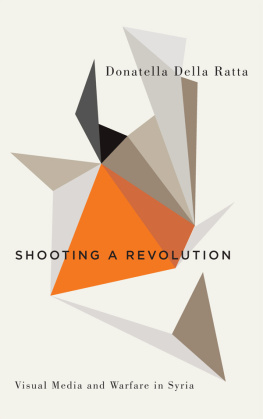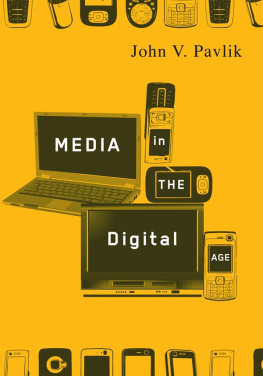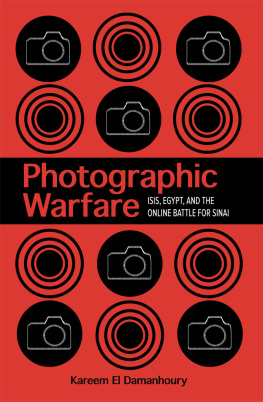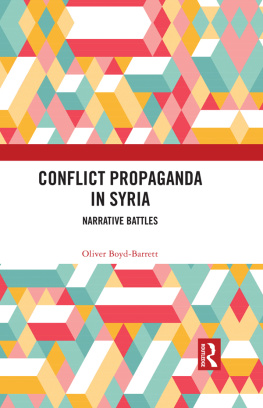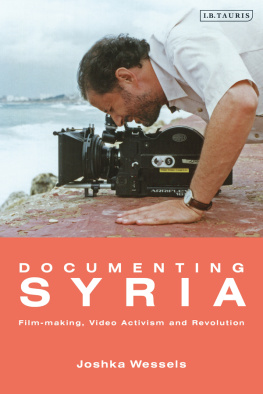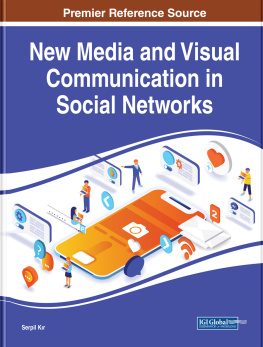Contents
Guide
Shooting a Revolution
Digital Barricades:
Interventions in Digital Culture and Politics
Series editors:
Professor Jodi Dean, Hobart and William Smith Colleges
Dr Joss Hands, Newcastle University
Professor Tim Jordan, University of Sussex
Also available:
Cyber-Proletariat:
Global Labour in the Digital Vortex
Nick Dyer-Witheford
Gadget Consciousness:
Collective Thought, Will and Action in the Age of Social Media
Joss Hands
Information Politics:
Liberation and Exploitation in the Digital Society
Tim Jordan
Unreal Objects:
Digital Materialities, Technoscientific Projects and Political Realities
Kate ORiordan
Shooting a Revolution
Visual Media and Warfare in Syria
Donatella Della Ratta

First published 2018 by Pluto Press
345 Archway Road, London N6 5AA
www.plutobooks.com
Copyright Donatella Della Ratta 2018
The right of Donatella Della Ratta to be identified as the author of this work has been asserted by her in accordance with the Copyright, Designs and Patents Act 1988.
British Library Cataloguing in Publication Data
A catalogue record for this book is available from the British Library
ISBN 978 0 7453 3715 9 Hardback
ISBN 978 0 7453 3714 2 Paperback
ISBN 978 1 7868 0186 9 PDF eBook
ISBN 978 1 7868 0211 8 Kindle eBook
ISBN 978 1 7868 0210 1 EPUB eBook
This book is printed on paper suitable for recycling and made from fully managed and sustained forest sources. Logging, pulping and manufacturing processes are expected to conform to the environmental standards of the country of origin.
Every effort has been made to trace copyright holders and to obtain their permission for the use of copyright material in this book. The publisher apologises for any errors or omissions in this respect and would be grateful if notified of any corrections that should be incorporated in future reprints or editions.
Typeset by Stanford DTP Services, Northampton, England
Simultaneously printed in the United Kingdom and United States of America
Contents
List of Illustrations
Series Preface
Crisis and conflict open up opportunities for liberation. In the early twenty-first century, these moments are marked by struggles enacted over and across the boundaries of the virtual, the digital, the actual, and the real. Digital cultures and politics connect people even as they simultaneously place them under surveillance and allow their lives to be mined for advertising. This series aims to intervene in such cultural and political conjunctures. It will feature critical explorations of the new terrains and practices of resistance, producing critical and informed explorations of the possibilities for revolt and liberation.
Emerging research on digital cultures and politics investigates the effects of the widespread digitisation of increasing numbers of cultural objects, the new channels of communication swirling around us and the changing means of producing, remixing and distributing digital objects. This research tends to oscillate between agendas of hope, that make remarkable claims for increased participation, and agendas of fear, that assume expanded repression and commodification. To avoid the opposites of hope and fear, the books in this series aggregate around the idea of the barricade. As sources of enclosure as well as defences for liberated space, barricades are erected where struggles are fierce and the stakes are high. They are necessarily partisan divides, different politicizations and deployments of a common surface. In this sense, new media objects, their networked circuits and settings, as well as their material, informational, and biological carriers all act as digital barricades.
Jodi Dean, Joss Hands and Tim Jordan
Acknowledgements
This work sums up so many years of my personal and professional life that the list of people and networks to be thanked is a long one. Please bear with me, and my sincerest apologies if going back with my memory I have forgotten someone.
I wish to thank the University of Copenhagen, Professor Jakob Skovgaard-Petersen and colleagues and friends at TORS (Department of Cross-Cultural and Regional Studies) for the generous material and human support without which my PhD research on Syria would never ever have seen the light of day. I thank The Danish Institute in Damascus, its former director Hans Christian Korsholm Nielsen and his wife Sibba, its latest director Anders Hastrup, and all its staff. It was thanks to the Institutes welcoming atmosphere, to the people who lived and worked there, to the engaging discussions we used to have in the stunning courtyard of the most beautiful Damascene house, that it was possible for me to conduct part of the research that led to this book. It breaks my heart to think about it emptied of all of this, although I am told it has become a shelter for many internally displaced families in Syria.
I owe my appreciation to Ole Wver and all the amazing researchers and staff at CRIC (Center for Resolution of International Conflicts), who, once Syria had become inaccessible to me, provided me with another shelter to think, discuss and develop my research further in the framework of my postdoctoral fellowship. I am grateful to Marwan M. Kraidy, Marina Krikorian and friends and colleagues at CARG (Center for Advanced Research in Global Communication) at The Annenberg School for Communication, where Ive also had the chance, unfortunately too short for personal reasons, to spend a wonderful period as a Postdoctoral Fellow. My gratitude goes also to Lisa Wedeen and Michael C. Dawson at the University of Chicago for hosting me for a short fellowship at the Center for the Study of Race, Politics, and Culture, during which I had the chance to enjoy fruitful and passionate scholarly discussions.
There are no words to express how deep and life-changing my experience of working at Creative Commons has been. I met Joi Ito, at the time chairman of the organization, at a TV market in Cannes. I asked him how I might be involved in Creative Commons. He said: drop the champagne and join the community meetings. Since that day, I have experienced unforgettable moments with the wonderful people working with the organization, from the headquarters in San Francisco to the wider community across the globe. It is because of Creative Commons that I have met the most wonderful Arab youths, women and men, techies, bloggers, activists, artists, educators, all passionate about sharing, all staunchly working to create a better future for the region. It is because of Creative Commons that I met Bassel Safadi, my beloved friend whom I have lost in the battle for knowledge, dignity and freedom. The memories I have shared with this fantastic human being, his crazy Fabricatorz friend Jon Philips, and the Creative Commons folks hanging out in the Middle East, travelling many kilometres by car, sometimes being stuck at shady borders and having to queue for hours while someone engaged in yoga exercises to avoid being overwhelmed by the local chaos, will always make me smile, despite what the Middle East has since become. I would like to express my infinite intellectual and professional gratitude to Joi Ito, and to Lawrence Lessig, the founder of Creative Commons, for having helped me gain insights into this global community of talented and inspiring human beings. But I would also like to thank them at a human level, as dear friends who have taught me important life lessons and constantly inspired me with their passion. This book offers a critical reflection on the values we have shared and believed in, which does not mean that these values were not genuine. The dark side of sharing and participatory cultures that Syria confronts us with should be taken as an incentive to push our reflection and action further, beyond the sad status quo that todays networks have set up and forced us into.

